- CEO of Leopardstown Park Hospital
- National Director of Acute Hospitals
- HSE National Director HR
- St. James’s Hospital Interim CEO
- CEO Our Lady’s Hospice & Care Services
- Healthcare Group Director of Strategy
- St. Vincent’s Acting CEO
- Mater Hospital CEO
- Lead Investigator to Inquiry
- New primary care centre
- Epilepsy Monitoring Unit
- Bon Secours CSSD certification
- Protection of Vulnerable People from Abuse
- Public access defibrillation
- Green Flag for Cork
- New VHI Board Members
CEO of Leopardstown Park Hospital

Ms. Ann Marie O’Grady has been appointed as the new Chief Executive of Leopardstown Park Hospital, Dublin. She took up the post on January 26, 2015.
Ms. O’Grady was previously the Head of Clinical Services & Business Planning at Beaumont Hospital, Dublin, a role which encompassed responsibility for business planning, community integration, acute and residential services on the St Joseph’s Hospital Campus, Raheny and Health and Social Care Professionals for the organisation. She has held this post for the past six years.
She has held a number of positions, both clinical and managerial, in the Irish and New Zealand healthcare settings since qualifying from University College Dublin. She is a current Non Executive Board member of Peamount Healthcare and past Board member of the National Social Work Qualifications Board. She has previously held the position of Vice Chairman of the Irish Society of Chartered Physiotherapists.
She is a Council Member and Honorary Editor of the Health Management Institute of Ireland and on the Editorial Board of the European Association of Hospital Managers.
National Director of Acute Hospitals

Mr. Liam Woods has been assigned to the role of National Director of the Acute Hospitals Division of the HSE for a period in the region of six months.
A very experienced health manager, Mr. Woods is National Director of the HSE Health Business Services (HBS) and a former Chief Finance Officer of the HSE.
Mr. Woods is the third person to hold the role of National Director of Acute Hospitals in recent times. His assignment follows the decision of Dr. Tony O’Connell, who had held the post for just seven months to return to Australia to rejoin his wife, who was appointed to an academic post there. The post was previously held by Mr. Ian Carter who moved from Acute Hospitals to become HSE National Director of Quality Assurance and Verification.
Dr. O’Connell, a medical doctor who worked as an intensive care specialist for many years said he was returning to Australia. He was recruited for the HSE post from Australia where he was Director General of the Queensland Health and oversaw reform of the hospital system.
HSE National Director HR

Mr. Ian Tegerdine is the current HSE National Director of HR. He succeeds Mr. Barry O’Brien who has moved from the HSE to work in the private sector.
Mr. Tegerdine was hired externally following a recruitment process undertaken by the Public Appointments Service (PAS) on behalf of the HSE.
The HSE said he was undertaking the role on an interim fixed term basis and PAS would be undertaking a recruitment process for his substantive successor later in the year.
Mr. Tegerdine served 25 years in the NHS in the UK . He is a Podiatrist by clinical background who early in his career made the move through general management into workforce development roles.
He is Chartered Fellow of the Chartered Institute of Personnel and Development (CIPD). He has served at Board level on a number of NHS Trusts for the last 10 years and has held Board level Director of Workforce roles across community, acute and commissioning organisations. He has particular interests in the fields of Organisation Development, Workforce Development & Planning and Education & Learning.
St. James’s Hospital Interim CEO

Prof. Patrick Plunkett has been appointed Interim Chief Executive of St. James’s Hospital, Dublin. He takes up his new post on February 2.
Prof. Plunkett is Medical Director of the hospital – and will retain this substantive post, while he is interim CEO.
The appointment is for a six-month period initially, to allow the St James’s Hospital Board to seek a substantive CEO replacement.
Prof. Plunkett has worked for many years as a consultant in Emergency Medicine at St. James’s. He is Clinical Professor of Emergency Medicine at Trinity College, Dublin.
Prof. Plunkett was previously Clinical Director, Emergency Directorate at St James’ Hospital, Dublin. He is a former Commissioner at St John Ambulance Brigade of Ireland and Editor Emeritus, European Society for Emergency Medicine EJEM.
CEO Our Lady’s Hospice & Care Services

Ms. Audrey Houlihan has been appointed Interim CEO of Our Lady’s Hospice and Care Services in Dublin.
She has a HR and Finance background and many years experience in both the private and public sector. She has a BA in HR and an MA in Public Management. Before commencing work with Our Lady’s Hospice & Care Services, Ms. Houlihan held a number of roles in the retail and wholesale industry in Ireland and the UK.
Since moving to the Hospice in 2001 she has held a number of different roles including Business Manager and Head of HR & Organisation Development across both Hospice sites in Blackrock and Harold’s Cross.
As vice chair of the Voluntary Hospital HR Manager group she also participated in many employee relations matters at national level.
She is a member of the Board at Caritas Convalescent Centre and Management Committee of All Ireland Institute of Hospice and Palliative Care. She is married to Michael and have two sons age 10 and 12.

Healthcare Group Director of Strategy
Mr. Nicky Jermyn has taken up a post as Director of Strategy with the St. Vincent’s Heathcare Group. Mr. Jermyn was previously CEO of the Group.
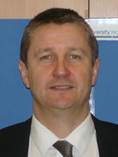
St. Vincent’s Acting CEO
Mr. Kilian McGrane has been appointed Acting Chief Executive of St. Vincent’s University Hospital, Dublin. He was formerly Chief Operations Officer at the hospital.
Prior to going to St. Vincent’s, Mr. McGrane was Deputy Director with the HSE National Cancer Control Programme. He has also worked as HSE Assistant National Director of Finance, Head of Corporate Affairs with the HSE and Assistant Principal Officer at the Department of Health.
Mater Hospital CEO

Prof. Mary Day will continue in her role as CEO of the Mater University Hospital in Dublin, following her appointment as CEO of the Ireland East Hospital Group.
The hospitals in the Ireland East Hospital Group are: Mater Misericordiae University Hospital; St Vincent’s University Hospital; Midland Regional Hospital Mullingar; St Luke’s General Hospital, Kilkenny; Wexford General Hospital; National Maternity Hospital; Our Lady’s Hospital, Navan; St Columcille’s Hospital; St Michael’s Hospital, Dun Laoghaire; Cappagh National Orthopaedic Hospital; Royal Victoria Eye and Ear Hospital.
Lead Investigator to Inquiry
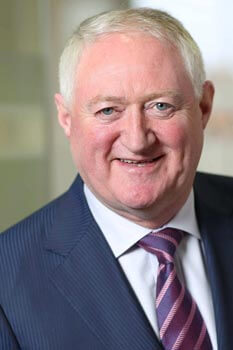
Mr. Pat McLoughlin has been appointed Lead Investigator to the Oireachtas Bank Inquiry. His role is to assist the Oireachtas Committee in its examination of the Crisis Management Systems and the policy decisions, national and international, taken to deal with the crisis.
This will involve, supporting, assisting and advising the Committee in the public hearings phase of the Inquiry and drafting reports on the basis of the written and oral evidence. His contract will last for 12 months.
Mr. McLoughlin is a former CEO of The Irish Payment Services Organisation (IPSO), a formerNational Director of the National Hospitals Office and Deputy CEO of the Health Service Executive and a former CEO of the South Eastern Health Board.
He has assisted Government, on a pro bono basis, in reviews of public expenditure, local government, child care, health insurance and a review of the Department of Justice. .He is a member of the Boards of a number of voluntary organisations.
He holds a degree in law from UCG and an MBA in management from the University of Strathclyde.
New primary care centre
Work has begun on the design of the new state-of-the-art Primary Care Centre for North West of Cork City at St Mary’s Health Campus, Gurranbraher. This will provide primary care and community services for up to 40,000 people locally.
It will allow for the transfer of HSE services and staff to work together with GPs in one setting and will provide increased access to an integrated service to those in the community.
In welcoming the proposal, Minister of State Kathleen Lynch stated “this new Primary Care Centre will complement the overall development of the St Mary’s Health Campus site and will enhance the Regeneration Plan of Cork City Council.
As well as GP services, the HSE services at the new Primary Care Centre will include Public Health and Community Nursing, Home Support, Physiotherapy, Speech & Language Therapy, Occupational Therapy, Dietician, Podiatry, Eye Clinic, Immunisation, Mental Health Teams, Community Workers and screening services such as Warfarin Screening, and Diabetic Retinopathy Screening.
The Primary Care Centre will also provide accommodation for University College Cork, including a Dental School service, the faculty of General Practice, as well as a Centre for Urban Health Studies and Health & Wellbeing Centre. This will provide potential for undergraduate and post-graduate education and training programmes, including an innovative multi-disciplinary Masters in Urban Health & Wellbeing.
Epilepsy Monitoring Unit

The first patients were admitted to the newly opened Epilepsy Monitoring Unit at Cork University Hospital this month.
The Epilepsy Monitoring Unit will significantly enhance the services it can offer to people with epilepsy in the region, particularly those with acutely unstable epilepsy and chronic disabling epilepsy. Patients referred from the southern region (Cork, Kerry, Tipperary and Waterford) will be able to attend for monitoring, assessment and treatment.
The new unit consists of a customised four-bed room with continuous nursing supervision and continuous 24/7 video-EEG monitoring. Nursing and medical staff working in the EMU will provide patients with the following services:
- by recording and analysing epileptic seizures in a safe environment, identify patients who may be suitable for epilepsy surgery;
- definitively diagnose or exclude epilepsy in patients with seizure-like events;
- observe patients admitted acutely to hospital with seizures in a safe environment; and
- educate and advise people with epilepsy.
Mr. Tony McNamara, CEO of the Cork University Group said that he was “pleased that we are now able to provide comprehensive care for patients with epilepsy. The staff needed to open the Epilepsy Monitoring Unit have been successfully recruited. We recently appointed fivestaff nurses trained in the management of epilepsy patients and a newly-appointed advanced nurse practitioner (ANP) with specialist training in epilepsy. These new staff will improve on the specialist care already provided by the existing neurology service at CUH. The Epilepsy Monitoring Unit will be an integral part of a number of services aimed to improve the care of people with epilepsy.”
Bon Secours CSSD certification
Bon Secours Hospital Galway has become the first hospital in Ireland to receive certification from the National Standards Authority of Ireland (NSAI) for its quality management system within the Clinical Sterile Services Department (CSSD) at the hospital.
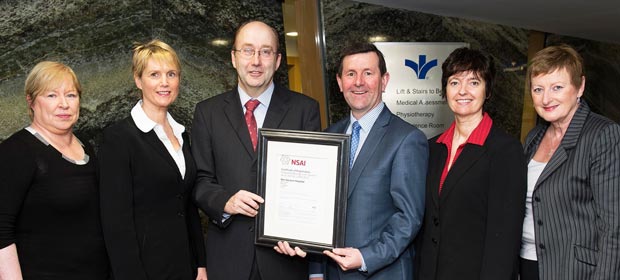
The certification specifically covers the management system for the provision of disinfection and sterilisation services for Re-usable Invasive Medical Devices (RIMD). This certification follows the hospital’s re-accreditation by Joint Commission International (JCI) in May 2014 which assesses Quality, Standards, Quality Improvement and Patient Safety.
ISO 13485:2012, for the provision of disinfection and sterilisation services for RIMD is an international standard which is recognised globally. ISO-13485:2012 assesses a range of criteria including, customer focus, responsibility & authority, competence and training, work environment, traceability to patient, internal audits, control of documentation, control of corrective and preventative actions and validation of processes. This ISO accreditation demonstrates Bon Secours commitment to provide the best possible decontamination standards which directly impacts on clinical outcomes within the hospital setting.
A CSSD, sometimes known as a decontamination unit, exists within the hospital to re-process RIMD. These devices come from different areas of the hospital, including operating theatres, clinics and wards. The devices are, pre-cleaned, dismantled, examined under a microscope or magnifier, disinfected and sterilised for re-use with a clear defined audit trail in place for all equipment.
Mr Maurice Buckley, CEO, NSAI said, “We are delighted that the Clinical Sterile Service Department at Bon Secours Hospital Galway has become the first hospital in Ireland to achieve ISO 13485; 2012 certification. This is a significant achievement and one that sets a benchmark for other hospitals to follow.”
Mr. Gerry Burke, Chief Executive, Bon Secours Galway said, “This ISO accreditation comes quickly on the heels of our JCI re-accreditation and highlights the emphasis we place on ensuring the very best safety standards for our patients. All hospitals re-use medical devices so it is critical that the very best practices are adhered to throughout the hospital.”
Bon Secours Health System is the largest private hospital group in Ireland and consists of four hospitals in Dublin, Cork, Galway and Tralee. Bon Secours Health System treats in excess of 200,000 patients per year with over 350 consultants and 800 beds.
Protection of Vulnerable People from Abuse
A new national policy on the protection of vulnerable people from abuse has been published by the HSE.
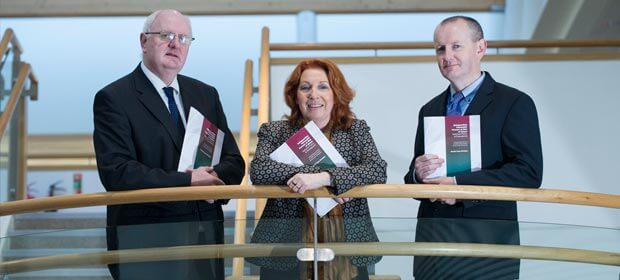
‘Safeguarding Vulnerable Persons at Risk of Abuse’ has been developed by the HSE’s Social Care Division (responsible for the provision of services for older persons and persons with a disability). This new policy is for all HSE and HSE funded services staff and builds on, and incorporates, existing policies in HSE Disability and Elder Abuse services and in a range of other Disability Service providers.
It provides one overarching policy to which all agencies will subscribe and implement in their place of work ensuring a consistent approach to protecting vulnerable people from abuse and neglect, that all services have a publicly declared ‘No Tolerance’ approach to any form of abuse and that a culture which supports this ethos is promoted.
Extensive consultation and engagement to develop the policy took place throughout last year with a range of key stakeholders including; the National Elder Abuse Steering Committee, dedicated officers for the Protection of Older People, the Governance Group for Disability Services, the National Federation of Voluntary Bodies, HIQA and the Commissioner for Older People in Northern Ireland. It was important to build on existing expertise and experience and for this to be incorporated into the policy which is underpinned by a number of principles, including respect for human rights, person centeredness, culture, advocacy, confidentiality, empowerment and collaboration.
This policy applies to older persons or persons with a disability that, as a result of physical or intellectual impairment, may be at risk of abuse. The person may be in receipt of a care service in his or her own home, in the community or be resident in a residential care home, nursing home or other setting. Equally, the person may not be in receipt of a care service.
Pat Healy, Director of Social Care, HSE said, “Safeguarding and protecting vulnerable people in our care is our priority. The new policy is effective immediately and ensures a consistent and robust approach across all services. We have secured additional funding of over €1 million to support the implementation of the policy including additional key personnel who will build a ‘no tolerance’ culture to abuse and neglect. All staff working with vulnerable adults will receive training to ensure they are aware of the new policy and their responsibility with the reporting, assessment, investigating and management of alleged abuse cases.”
Public access defibrillation
A health technology assessment (HTA) of public access defibrillation, published by HIQA has advised the Minister for Health that if such a programme was introduced in Ireland, it should only be considered in conjunction with measures to increase the use of publicly-accessible defibrillators.
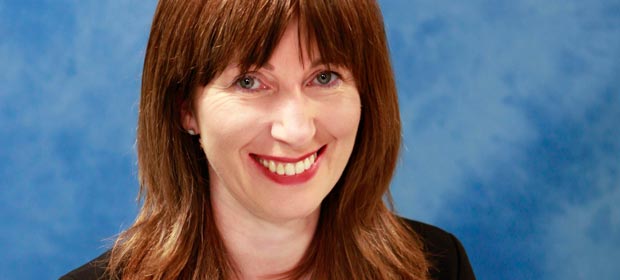
HIQA was asked by the previous Minister for Health to undertake this health technology assessment, to inform decision making on the Public Health (Availability of Defibrillators) Bill 2013. The Bill proposes the mandatory provision of static automated external defibrillators in a comprehensive list of designated places around the country.
HIQA’s Director of Health Technology Assessment Dr. Máirín Ryan said: “The proposed legislation lists types of premises and venues that would be required to install and maintain a defibrillator as well as train staff in their use. HIQA’s analysis shows that, depending on the number of building types included, this type of programme would involve the provision of between 2,000 and 38,000 additional defibrillators and would save between two and 10 additional lives annually, at a total cost of between €5.3 million and €105 million over the first five years.
“Based on current data, none of the public access defibrillation programmes that we assessed would be considered cost-effective using conventional willingness to pay thresholds.
“As well as examining the programme outlined in the Bill, we also evaluated a number of scaled down programmes targeting only those building types with the highest incidence of cardiac arrest. Today in Ireland between 8,000 and 10,000 defibrillators are available, including at many of the high incidence locations where cardiac incidents are most likely to happen.”
“Targeted placing of defibrillators in higher incidence locations and a national defibrillator register linked to emergency medical services, together with significantly increased use of defibrillators via heightened public awareness, could render public access defibrillation programmes more cost-effective.
“Any prospective programme should start by targeting the mandatory deployment of defibrillators at locations with the highest incidence of out-of-hospital-cardiac-arrest.”
Green Flag for Cork
Cork University Hospital (CUH) is the first hospital in the world to be awarded the prestigious ‘Green Flag’ for its efforts in reducing its carbon footprint by the Foundation for Environmental Education and An Taisce.
The green initiatives resulted in financial savings of €96,318 for the hospital. In 2013,which would provide enough heating and power for 66 households a year based on their typical consumption, equivalent to 1,265,862 kwhror 493 tonnes green house gases reduction. The campus improved its waste management practices and this resulted in an increase in the waste recycling rate to 34 per cent; a reduction in food waste by three tonnes and a reduction of health care risk (clinical) waste by nine tonnes.
The Green Flag award acknowledges CUH as a leading healthcare organisation in green initiatives such as:
Nominating staff as green advocates who are the eyes and ears of the hospital’s green agenda. The advocates identify areas where CUH can make changes and better implement its green programme. They also help to spread the message of sustainability in their respective departments around the hospital campus.
Benchmarking its energy consumption and waste management. CUH measures itself against the EPA benchmarks, which allows the hospital to assess its performance and set goals and targets for energy saving and waste reduction.
Looking after garden areas – recently many trees and shrubs have been transplanted to other areas during the construction of a new building for mental health services. A Japanese garden and a green play area for children and their families have also been developed.
Harnessing support from staff working towards shared goals and targets. The hospital says there is a strong feeling of togetherness and team work as everybody is moving towards making sustainable practices the norm and the way things are done across the CUH campus.
An Taisce granted the international accreditation following a stringent review of the hospital’s waste, energy, water use, transport, recycling efforts and emissions, representing extensive efforts over four years by staff and students on the CUH campus.
According to CUH CEO Mr. Tony McNamara, “By creating a healthier environment for patients, staff and visitors, we are taking an important step in achieving the best outcomes for our patients and supporting community health. Specific changes in the ways we operate will lay the groundwork for better health – inside and outside the hospital. In recent years we have endeavoured to transform the design, construction and operations of CUH campus facilities to minimise environmental impacts and foster healthy, healing environments. With the assistance of staff we have also improved energy efficiency and waste management practices. We can quickly adopt proven practices and generate cost savings that allow us to devote more resources to do what we do best: provide high-quality, safe healthcare services.”
New VHI Board Members
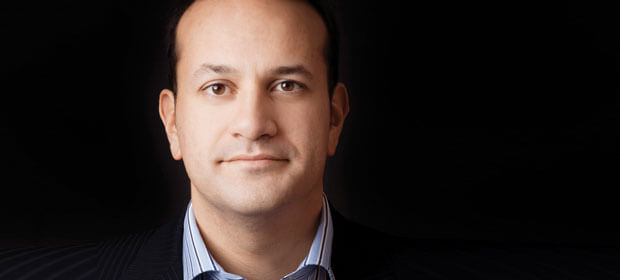
Minister for Health Leo Varadkar has appointed three new members of the Voluntary Health Insurance Board for a five year period – Ms. Joyce Brennan, Mr. Paul O’Faherty and Mr. Declan Moran.
Ms. Brennan (FIA, FSAI, MBA, QFA) is an actuary with more than 20 years’ experience. She is a Principal with Mercer Ireland and a former Director of KPMG who specialises in developing and implementing programmes of change to defined benefit pension plans and advising on governance and procedures.
Paul O’Faherty, (FSAI) has extensive experience in business and consultancy. He is the immediate past President of the Society of Actuaries in Ireland, a former CEO of Mercer Ireland and a former Chairman of Marsh McLennan Companies (MMC), Ireland. His main areas of expertise are in business strategy, corporate governance, pensions and health policy, risk management, insurance and institutional investment.
Declan Moran, (FIA) is the Director, Marketing and Business Development with Vhi Healthcare. He has a BSc in Computer Science and is a Fellow of the Institute of Actuaries since 1994. He joined Vhi Healthcare in 1997 from the life and pensions industry and was previously appointed to the VHI Healthcare Board of Directors for the period 2008 to 2013. From November 2011 to July 2012, he served as Acting Chief Executive, VHI Healthcare.

